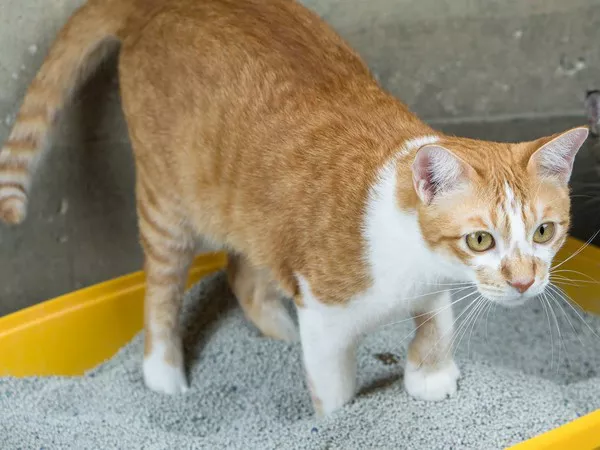“Meat mouth” is a colloquial term often used to describe a specific appearance of a Shar-Pei’s mouth and teeth. It’s important to note that “meat mouth” is not a medical diagnosis but rather a descriptive term used within the Shar-Pei community to characterize a particular feature of the breed. This term refers to the distinctive jaw and dental structure observed in some Shar-Pei dogs.
Meat Mouth in Shar-Pei Dogs Appearance
The characteristic features of meat mouth in Shar-Pei dogs include an overbite, misaligned teeth, and a jawline that may resemble that of a bulldog or exhibit an underbite appearance. These traits contribute to the unique aesthetic of the Shar-Pei breed and are often considered desirable by enthusiasts.
Causes of Meat Mouth
Genetics
The primary cause of meat mouth in Shar-Pei dogs is genetic factors inherent to the breed. The Shar-Pei is a distinctive breed with a rich history, and its unique appearance, including meat mouth, is a result of centuries of selective breeding. While the exact genetic mechanisms underlying meat mouth are not fully understood, it is believed to be inherited through specific genetic traits passed down from generation to generation.
Breeding Practices
Selective breeding practices in the past have likely contributed to the prevalence of meat mouth in the Shar-Pei breed. Breeders may have intentionally selected for certain physical characteristics, including the distinctive jaw and dental structure associated with meat mouth, to achieve a desired appearance standard. However, such practices may inadvertently exacerbate genetic predispositions to dental issues and other health concerns associated with meat mouth.
Other Potential Factors
While genetics are the primary cause of meat mouth in Shar-Pei dogs, other factors such as nutrition and jaw development may also play a role, albeit to a lesser extent. Adequate nutrition during puppyhood is essential for proper jaw development and dental health. However, even with optimal nutrition, genetic predispositions can still manifest in the form of meat mouth.
Impact of Meat Mouth in Shar-Pei Dogs
Appearance
Meat mouth significantly influences a Shar-Pei’s overall appearance, particularly its bite and jawline. The overbite and misaligned teeth characteristic of meat mouth contribute to the breed’s unique facial structure, which is a defining feature for many Shar-Pei enthusiasts.
Chewing and Eating
Meat mouth can pose challenges for Shar-Pei dogs when it comes to eating and chewing. The misalignment of teeth may result in difficulty biting down properly, leading to uneven wear on the teeth and potential dental problems over time. Additionally, Shar-Pei dogs with meat mouth may require special accommodations, such as softer food options or specially designed chew toys, to help facilitate chewing and prevent discomfort or injury.
Socialization and Interaction
While meat mouth itself is not inherently harmful, it could potentially affect a Shar-Pei’s ability to socialize and interact with other dogs. The unusual bite associated with meat mouth may make it difficult for Shar-Pei dogs to engage in certain types of play or activities that require a strong bite grip. However, with proper socialization and training, many Shar-Pei dogs with meat mouth can lead fulfilling lives as beloved family pets.
Health Implications
There are potential health implications associated with meat mouth in Shar-Pei dogs, primarily related to dental problems and jaw issues. The misalignment of teeth can increase the risk of dental issues such as tooth decay, gum disease, and tooth loss. Additionally, the structural abnormalities in the jaw may lead to discomfort or pain for the affected dog, necessitating veterinary attention and care.
See Also: Are Chinese Shar-Peis Hypoallergenic?
Dealing with Meat Mouth in Shar-Pei Dogs
Regular Vet Check-Ups
Regular dental check-ups and cleanings by a veterinarian are essential for addressing any dental issues associated with meat mouth in Shar-Pei dogs. Veterinarians can identify and treat dental problems early on, helping to prevent more serious complications down the line.
Dental Care at Home
In addition to professional dental care, home dental care is also crucial for maintaining the oral health of Shar-Pei dogs with meat mouth. Owners should brush their dog’s teeth regularly using a canine toothbrush and toothpaste recommended by their veterinarian. Providing dental chew toys can also help to promote good oral hygiene and prevent tartar buildup.
Dietary Considerations
Dietary considerations may be necessary for Shar-Pei dogs with meat mouth, particularly if they experience difficulty chewing or swallowing certain types of food. Soft food options or specially formulated diets may be recommended to accommodate their unique dental needs. Additionally, providing appropriate chew toys can help to strengthen the jaw muscles and promote dental health.
Ethical Considerations
Breeding Practices
Ethical considerations surrounding the breeding of Shar-Pei dogs with meat mouth are important to address. Responsible breeders should prioritize the health and well-being of the dogs above all else, avoiding selective breeding practices that may perpetuate genetic predispositions to meat mouth or other health issues. Breeders should conduct thorough health screenings and genetic testing to minimize the risk of hereditary conditions in their breeding programs.
Adopting from Rescue
For individuals considering adding a Shar-Pei with meat mouth to their family, adoption from a rescue organization can be a rewarding option. Many Shar-Pei dogs with meat mouth are in need of loving homes and may be overlooked due to their unique appearance. By adopting from a rescue, potential owners can provide a second chance for a dog in need while also supporting ethical and responsible pet ownership practices.
In conclusion, meat mouth is a distinctive feature of the Shar-Pei breed, characterized by an overbite, misaligned teeth, and a bulldog-like jawline. While primarily caused by genetic factors, other considerations such as nutrition and breeding practices may also contribute to its prevalence. Despite potential challenges associated with meat mouth, Shar-Pei dogs with this trait can lead happy and healthy lives with proper care, attention, and support from their owners and veterinary professionals.
Related Topics:

























